Leadership Basics
 Download PDF | View online
Download PDF | View online
Educative Leadership by Allan Walker and Terry Quong
This Leadership Basics is about a paradigm of leadership known as educative leadership. Being an educative leader is essential because, as most school leaders would agree: The purpose of school leadership is to improve learning and all members of the school community are considered to be learners. The paradigm of educative leadership applies equally to leaders in big corporations, such as Shell, Microsoft, and Sony as it does to primary or secondary schools. Educative leadership is NOT simply about improving instruction or teaching; the most successful organisation is the one that is able to ‘learn’. In the corporate world of private enterprise, this learning has to be ‘faster’ than an organisation’s competitors and ensure that the organisation stays abreast of the rapidly changing knowledge of the information age. In schools educative leadership is about ensuring that learning is focused on continuously improving student outcomes, whilst at the same time ensuring that these outcomes align with the values of the day, are in tune with current knowledge, and are culturally relevant. In this Leadership Basics we will explore three dimensions of Educative Leadership: 1) Authentic leadership, 2) Cultural leadership and 3) Pedagogical or instructional leadership.
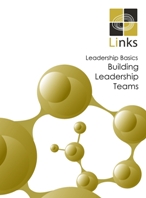 Download PDF | View online
Download PDF | View online
Building Effective Teams by Allan Walker and Terry Quong
This Leadership Basics is This reading is about improving the capacity of school leaders at all levels to work in, and lead, productive teams. After providing a very brief background to team leadership, this reading will describe a framework on which mid-level leaders can model their work in developing effective teams. Following the framework, mid-level leaders will have the opportunity to sharpen their team skills by exploring a series of case studies or scenarios about teamwork. The purpose of the Leadership Basic is to help enhance the capacity of mid-level leaders to work in and lead productive teams.
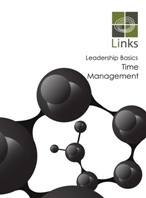 Download PDF | View online
Download PDF | View online
Time Management by Allan Walker and Terry Quong
The increasingly complex nature of school in terms of rapid reform demands more than ever that we consciously consider and plan how they can best use time to produce maximum results. To develop higher-level time management skills, mid-level leaders need a system or plan which
reduces the time they spend on minor or unimportant tasks, and so increases the time they spend on actions which are really important both personally and professionally. As a starting point for this booklet, we assume that you have already articulated your purpose as a leader, except for a small section we will concentrate on the later, or the practical strategies which can be used to better organize and utilise your time.
 Download PDF | View online
Download PDF | View online
Negotiation Skills by Allan Walker and Terry Quong
28 years ago, when some of us started teaching, the leader did not have to negotiate – or collaborate – with his or her staff, the leader just directed and teachers (within reason) just followed. Nowadays we encourage students to collaborate and work together in teams, and negotiating with staff is a matter of day to day necessity. Being an effective leader today means being able to engage staff in joint decision making and collaborative team work. Leaders have to be able to share leadership with their senior team, and be able to get the best out of teachers – and this means being good at negotiation. This booklet is designed to enhance leaders interpersonal and management skills. It has been developed to help hone interpersonal skills when negotiating with staff in decision making.
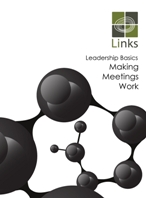 Download PDF | View online
Download PDF | View online
Making Meetings Work by Allan Walker and Terry Quong
Meetings are a regular source of complaint in many schools and Leaders. Some people think that if they can string two words together coherently, they are capable of running meetings, and that is where the problem starts, because meetings are thought to be forums for talking when, in many cases, they should be about action - doing things. This booklet examines some guidelines for conducting effective and productive meetings. In particular, we consider what you should do before, during and after the meeting.
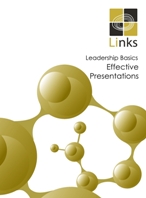 Download PDF | View online
Download PDF | View online
Effective Presentations by Allan Walker and Terry Quong
Our aim in this Leadership Basics is to outline how you can enhance what you have to say through effective presentation skills. The purposes of presentations include:
1. To inform colleagues about your work.
2. To update colleagues with information.
3. To inform interested parties about the work of the organization.
4. To engage in joint problem-solving.
5. To gain support or acceptance for your ideas.
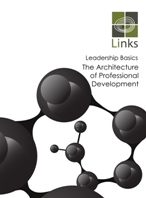 Download PDF | View online
Download PDF | View online
The Architecture of Professional Development by Paul Bredeson
The purpose of this Leadership Basics is to accomplish three broad objectives.
First, Prof. Brdeson describes an emerging architecture for teacher professional development highlighting its underlying design principles, essential components, and expressions in contemporary educational reform in schools. The second objective is to propose a framework for evaluating the architecture of professional development. In the final section of this booklet, Prof. Bredeson describes how the systematic evaluation of professional development helps us better understand the messages and meanings communicated in current expressions of professional development architecture.
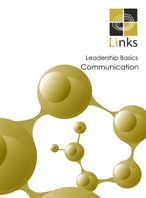 Download PDF | View online
Download PDF | View online
Communication by Allan Walker and Terry Quong
If leadership is about influence, communication is a key leadership competency. To labour the point, if you can’t communicate you can’t influence people and therefore you can’t lead. In high-performing schools, everyone is “singing the same tune” and this requires a strong, well-articulated communication strategy. In our experience school leaders are more than willing to communicate and most have already mastered the basics of interpersonal and tactical communication. What many school leaders lack is a strategic approach to communication. This Leadership Basics is written for mid-level leaders to provide insight into how they can develop a strategic approach to improving communication.
 Download PDF | View online
Download PDF | View online
Influencing by Allan Walker and Terry Quong
It almost goes without saying that to be an effective leader you need to be able to influence people. Leadership has been described, rather ‘tongue in cheek’, as the art of getting work done through others. More appropriately, we believe that influencing is about finding ways to support and implement the decisions that you and your team members perceive are necessary to achieve improved outcomes in your school. The basic argument is that improved leadership can be a directly correlated to improved influencing behaviour. This Leadership Basics explores the importance of influence for school leaders and describes some practical ways in which you might improve your influencing skills.
 Download PDF | View online
Download PDF | View online
Building a Leadership Portfolio by Allan Walker and
Terry Quong
What is a portfolio? It is a document holder full
of ‘bits of evidence’ pulled together to ‘prove a point’. Does a leader need
a portfolio
and what is the point of having one?
The answer of course depends on the leader. But many leaders have found it useful
both as a learning / review device, and as a document ‘selling’ them when seeking
a job, a contract extension or as a part of a review. We say the answer is a
resounding YES, leaders do need a portfolio, and in this booklet we try to explain
why they need a portfolio - for the purpose of having one.
more to come soon . . .
